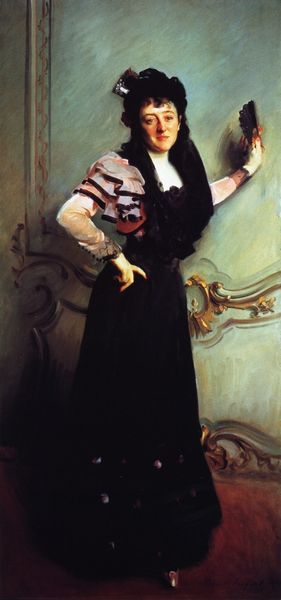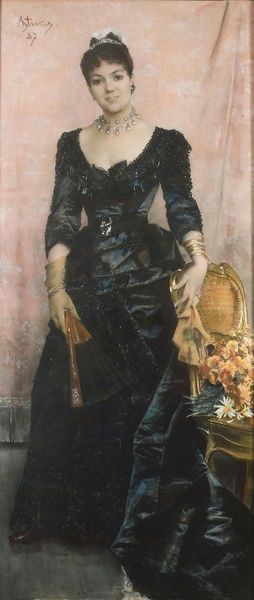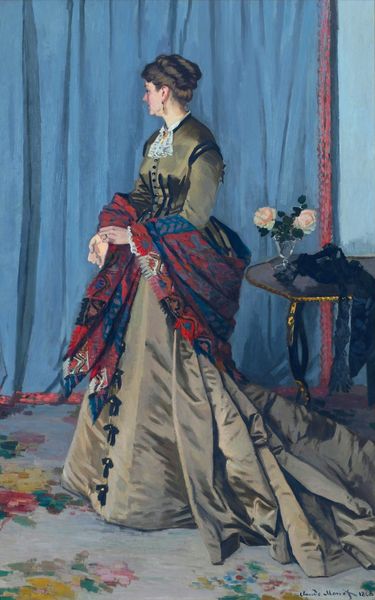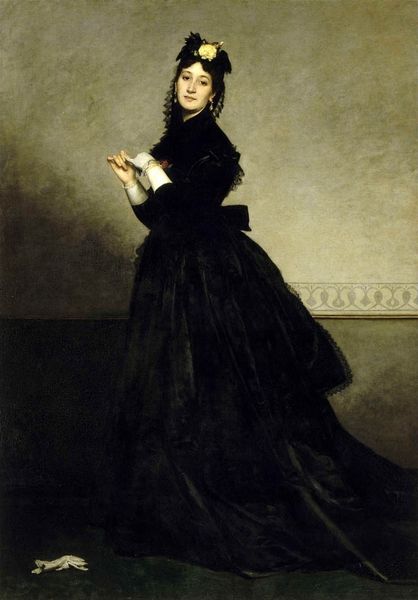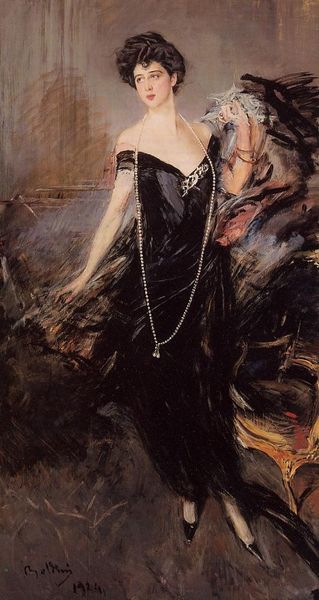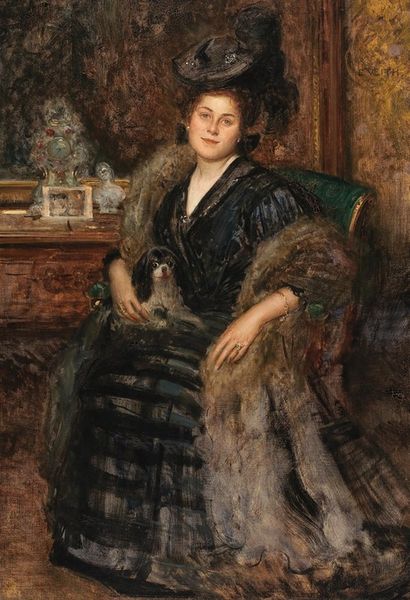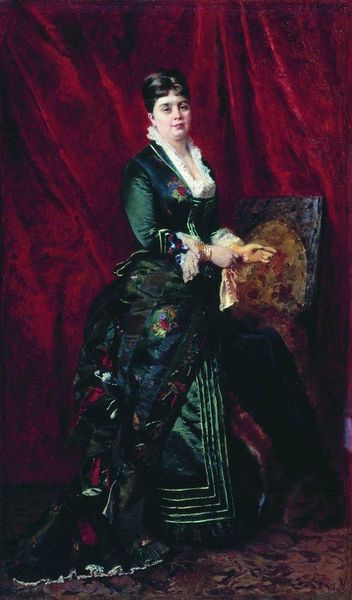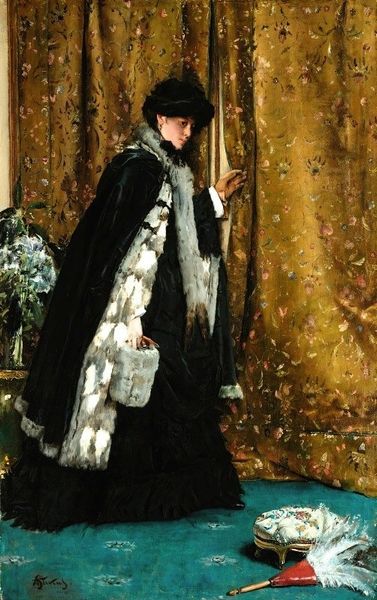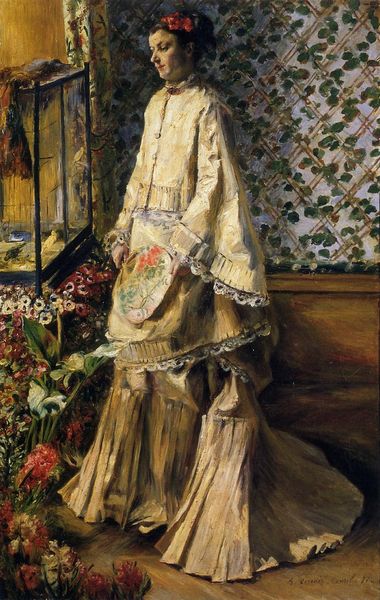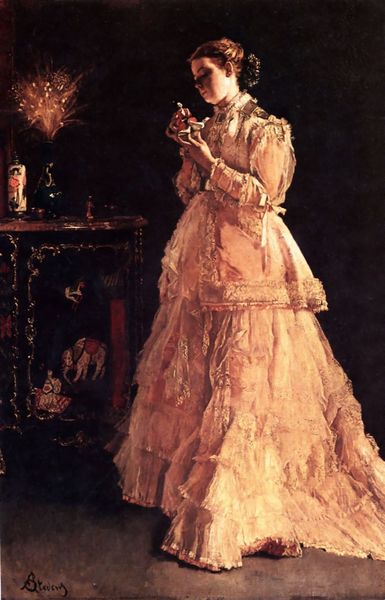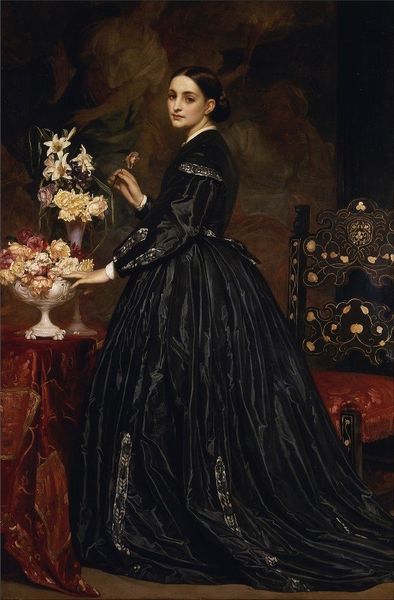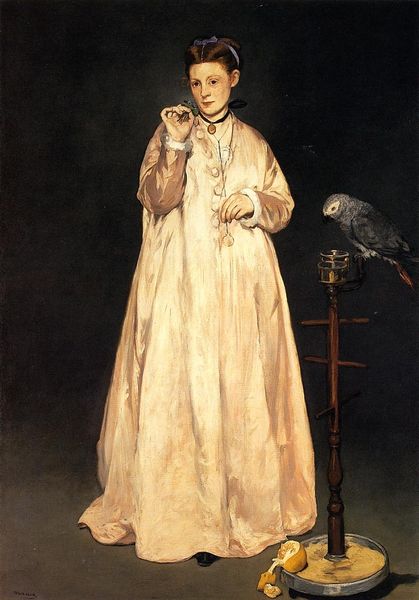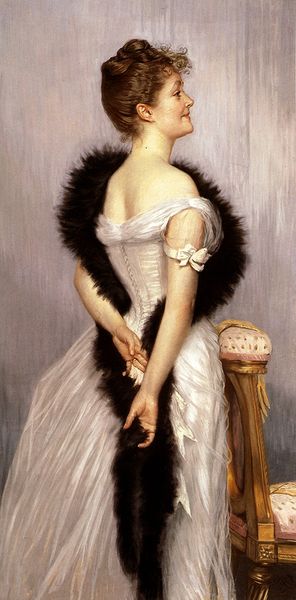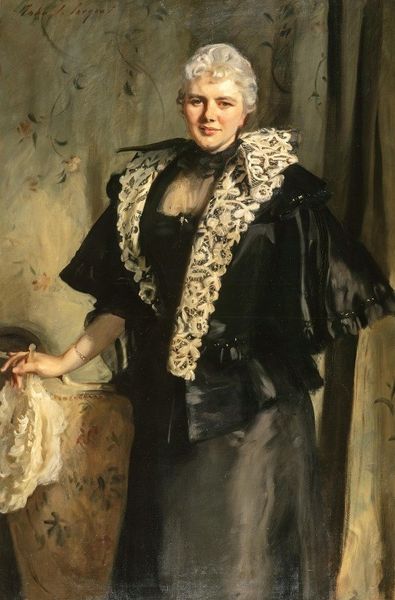
#
fantasy art
#
possibly oil pastel
#
oil painting
#
neo expressionist
#
underpainting
#
facial painting
#
surrealism
#
abstract character
#
surrealist
#
lady
#
portrait art
Copyright: Public domain
Editor: So, this is Renoir's "Woman with a Parrot," painted in 1871. There's a captivating stillness, a poised elegance in the woman's gaze and posture. I’m curious – what complexities or tensions do you observe beneath this calm surface? Curator: I think Renoir’s painting allows us to investigate the constructed nature of femininity in 19th-century France. The parrot, and the gilded cage beside it, mirrors the woman's position. Both are beautiful, valuable, and contained. How might we interpret this in relation to the limited roles afforded to women of the time? Editor: I see your point! The bird is physically caged but the woman is, metaphorically. But isn’t it just a beautiful scene? A lady with her pet? Curator: Certainly, the aesthetic appeal is undeniable, but to stop there risks ignoring the painting's deeper cultural resonance. We need to remember that parrots, at this time, were symbols of exoticism, luxury and colonial power. Where did these parrots originate and what was France’s role? Who profited from the capture, transport, and sale of these birds? This raises interesting questions about privilege, access, and power. What does the lady's interaction with the bird signify in that light? Editor: It adds another layer, really darkening the interpretation! What about the red ribbons? Do they have a meaning? Curator: Exactly! These elements add to the image’s richness, urging us to examine how art reflects and reinforces societal norms. Even what may appear innocent and fashionable, can have underlying historical weight. Editor: This is fascinating. I’ll never look at a portrait the same way again! Curator: Indeed! It's a good example of how art history offers insights into past power structures.
Comments
No comments
Be the first to comment and join the conversation on the ultimate creative platform.
